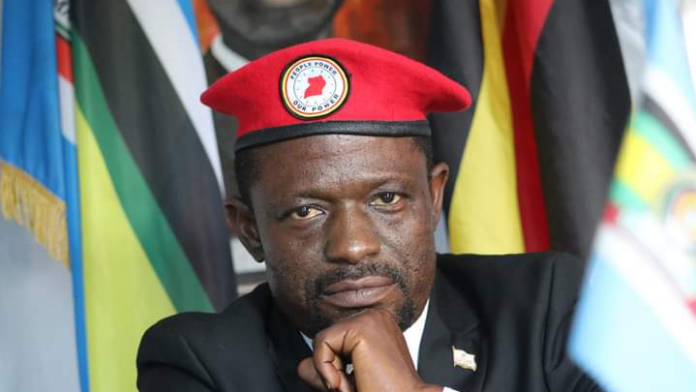
Uganda’s political landscape has long been tainted with violence, enforced disappearances, and extrajudicial killings orchestrated by the regime of Mr. Yoweri Kaguta Museveni Tibuhaburwa. These atrocities, carried out under the guise of maintaining national security, have intensified in recent years, especially since the emergence of the National Unity Platform (NUP) and other opposition groups. Abductions have become a common tool of intimidation, with opposition figures, activists, and even ordinary citizens being snatched off the streets by plain-clothed, gun-wielding operatives driving unmarked drones. Some never return, while others are dumped on roads, battered and barely alive, only to be saved by good Samaritans. The lucky ones recount tales of unspeakable torture, while the unlucky ones disappear into the shadows of history, never to be heard from again.
Recently, the abduction of Chairman Nyanzi Ssentamu, a prominent leader in the National Unity Platform, has highlighted the impunity with which these operations are conducted. He was taken in unmarked tinted vans by plain-clothed men with guns, and his whereabouts remain unknown, even to the police, which controls all city monitoring security cameras at every major intersection of Kampala. This further underscores the state’s complicity in these enforced disappearances.
Why is the International Community Silent?
The lack of a strong response from the international community raises serious questions. Governments like the USA, Canada, the UK, the Netherlands, Switzerland, Poland, and Norway continue to fund Uganda’s government, despite clear evidence of gross human rights violations. The silence from these donor nations, many of whom champion democracy and human rights elsewhere, suggests complicity or, at the very least, a disturbing level of indifference. Could it be that they benefit from Uganda’s instability, using the situation to exert political and economic influence over the country while turning a blind eye to the suffering of Ugandans? Their continued financial and diplomatic support to Museveni’s government suggests they are more concerned about their strategic interests than the human rights of Ugandans.
Is Museveni Above International Human Rights Law?
The Ugandan regime’s continued violations of human rights, without consequences, raise the question: Is Museveni above international law? Organizations such as the United Nations Human Rights Council (UNHRC), the African Union, and the International Criminal Court (ICC) have remained largely ineffective in addressing these crimes. Despite numerous reports of human rights violations, including those by Amnesty International and Human Rights Watch, there has been no meaningful action to hold Museveni and his security apparatus accountable. The regime operates with impunity, knowing well that the so-called guardians of human rights will do little more than issue statements of “concern.”
Moreover, Museveni has now extended his oppressive reach beyond Uganda’s borders. Toxic deals are being made to abduct those fleeing Uganda for safety, making even nearby countries unsafe for political dissidents. A recent case involved the abduction of Dr. Kizza Besigye from Kenya, proving that Museveni’s long arm of repression extends into neighboring nations, endangering those seeking refuge from his brutal regime.
The Ugandan Parliament: A House of Silence
Uganda’s Parliament, the supposed guardian of democracy and justice, has failed the people it represents. Instead of holding the executive accountable, the majority of MPs are complicit, either out of fear or financial gain. The few opposition voices who dare to speak against the regime are harassed, threatened, or even abducted. Parliament has become a mere rubber stamp for Museveni’s dictatorial rule, offering no real resistance to the systematic oppression of Ugandans.
Has Africa Abandoned Ugandans?
The broader African human rights bodies, including the African Commission on Human and Peoples’ Rights, have also been largely silent. African leaders, many of whom run similar oppressive regimes, have chosen to ignore Uganda’s descent into state-sponsored terror. The silence of regional bodies like the East African Community (EAC) and the African Union (AU) is deafening. Their inaction signals that they have either surrendered to Museveni’s influence or have no genuine commitment to protecting human rights on the continent.
What Options Are Left for Vulnerable Ugandans?
With all democratic institutions failing, the question remains: what can the ordinary Ugandan do? Peaceful protests are met with brutal crackdowns, while political activism often leads to imprisonment or worse. The space for free expression is shrinking, and fear has become a permanent resident in the hearts of Ugandans. However, history has shown that oppressive regimes are not invincible. Unity, resilience, and persistent defiance have toppled dictators before. While the risks are great, Ugandans must continue to demand their rights, mobilize internationally, and expose the regime’s crimes to the world.
The Role of Donor Nations: Complicit in Human Rights Violations?
Western donors and international organizations that continue funding Uganda’s government must be held accountable. The very same countries that preach democracy and human rights are sustaining a regime that blatantly violates them. By continuing to provide financial aid, military assistance, and diplomatic backing to Museveni’s government, they are enabling oppression. If these nations truly stand for democracy, they must condition their support on real political reforms and respect for human rights.
Conclusion: The Fight for Justice Must Continue
The abductions, torture, and killings orchestrated by Museveni’s regime are a clear violation of international human rights law. The Ugandan people must not be abandoned. It is time for the international community to stop prioritizing strategic interests over human lives. It is time for African human rights bodies to wake up. And above all, it is time for Ugandans to reclaim their dignity and demand justice, no matter the cost. Oppression cannot last forever; the people’s will, when united, is more powerful than any regime. The world must act before Uganda descends further into the abyss of tyranny
https://hoimapost.co.ug/the-dark-legacy-of-abductions-in-uganda-a-nation-held-hostage-by-state-terror/